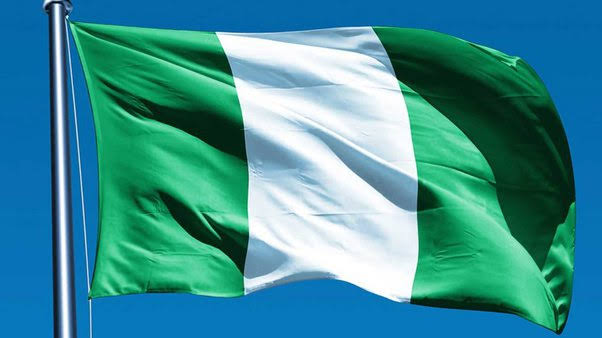Nigeria‘s Excess Crude Account (ECA) has dwindled from its glorious days of approximately USD 20 billion (at one point in time) to a mere USD 473 thousand in May 2023. Collectively, between 2004 (when the account was established) and 2022, the government has withdrawn over USD 200 billion from the account.
How did we arrive at this point? How could a country as vast as Nigeria falter in one of the fundamental aspects of investing? And what can be done to rectify the situation? To comprehend fully the ramifications of the Nigerian government‘s reckless and extravagant spending, let us first briefly examine Norway.
How Norway reached USD 1 trillion
Norway‘s sovereign wealth fund is now hailed as one of the most successful sovereign funds globally, boasting a total market value exceeding USD 1 trillion.
How did Norway get here?
After the discovery of oil in the 1960s/70s, Norway swiftly After the discovery of oil in the 1960s/70s, Norway swiftly recognized the importance of prudent resource management.
What are other countries doing?
Norway isn‘t alone in this — other countries following similar principles have seen outright increases in their sovereign funds over the past years including Saudia Arabia, Kuwait, Singapore.
These countries have adopted similar principles and strategies to safeguard and enhance the value of their funds.
Nigeria‘s story
In 2004, then-President Olusegun Obasanjo established the Excess Crude Account (ECA) with the objective of saving and stabilizing surplus revenue generated from crude oil exports. The purpose of the account was to create a financial buffer during periods of economic volatility and to save for future generations. At first glance, this appears to be a commendable idea, aligning with the reasons behind Norway‘s establishment of its fund in the 1990s. However, regrettably, that is where the similarities end. The events that unfolded from 2004 until today are unprecedented.
Before proceeding further, it is important to note that obtaining consistent data on the inflows and outflows from the ECA between 2004 and the present proved to be a challenging task. Nonetheless, the following information should provide you with an understanding of the current state of the account.
Between 2004 and 2018, the ECA recorded inflows of approximately USD 196 billion, while outflows amounted to USD 107 billion during the same period. This indicates that the government recklessly spent over 50% of the total inflows without a clear investment strategy in place.
Today, the ECA has reached a meager amount of approximately USD 473 thousand . Yes, you read that correctly—not billions or millions, but thousands and might as well be on its way to the hundreds.
Where did we go wrong?
- Lack of accountability: The government failed to establish proper guidelines and mechanisms for managing the fund, resulting in a lack of transparency and accountability. This lack of information regarding the account‘s specifics, fund amounts, and withdrawal
the account‘s specifics, fund amounts, and withdrawal criteria prevented the public from having a clear understanding of its operations.
- Unauthorized withdrawals: Numerous instances occurred where funds were withdrawn without proper authorization or adherence to due process. This further contributed to the mismanagement and erosion of the fund.
3.Political interference: The funds from the ECA were at times diverted for political purposes rather than being utilized for economic development or specific projects. This diversion hindered the fund‘s intended purpose and undermined its potential impact on the Nigerian economy.
- Corruption: The outflows from the ECA were not effectively deployed to mitigate the economic impact or serve as a stabilization mechanism during periods of volatility. This failure to use the fund for its intended purposes reflects a significant challenge of corruption.
Unlike Norway, Nigeria missed the opportunity to leverage the surplus oil revenue to build wealth for future generations.
If you have reached this point, you might be wondering why it took until 2011 to establish the NSIA and provide them with a clear mandate to invest the fund for better returns. What could have been the outcome if this had been the clear goal from the beginning?
Quick exercise
Let‘s assume that in 2018, we miraculously still had approximately USD 200 billion in the ECA account and transferred 80% of that to the NSIA for investments in a diversified portfolio, leaving USD 40 billion in the ECA for economic stabilization. Here is where we would stand today and in 25 years‘ time.
Other assumptions:
- No additional inflows into the fund (for simplicity).
- The average return on the fund is 5.7% (similar to Norway‘s fund).
- Interest earned is reinvested into the fund.
Over a span of 25 years, the fund would have grown to USD 640 billion, with an expected return of USD 480 billion.
These figures highlight the missed opportunities resulting from the lack of a well-defined strategy over the past decade. It emphasizes that implementing such a strategy is not complex or beyond reach.
The following are key suggestions to ensure a positive trajectory for Nigeria:
- Robust governance framework: Implement a strong governance framework with clearly defined roles and responsibilities for relevant government agencies. This will ensure effective oversight, accountability, and prevent unauthorized withdrawals.
- Legal framework: Strengthen and enforce laws and regulations governing the ECA and NSIA. This includes adherence to fiscal responsibility acts or similar legislation that outline rules and limits for contributions, withdrawals, and utilization of the funds.
- Consistent contributions: Maintain consistent contributions to the ECA, especially during periods of high oil prices. Implement a rule-based approach where a specific percentage of excess oil revenue is automatically allocated to the ECA and subsequently to the NSIA. This disciplined approach will ensure consistent savings.
- Transparency and accountability: Establish clear guidelines and procedures for the management of the ECA, including regular reporting and disclosure of account balances, contributions, and withdrawals. Enhancing transparency will enable public scrutiny and ensure accountability. The NSIA should also be required to report on all investments, strategies, returns, and provide detailed transparency on their website for clear accountability.
- Stabilization mechanism: Develop a transparent and rules-based mechanism that outlines the conditions for withdrawals and ensures the funds are effectively deployed to stabilize the economy during periods of volatility.
- Independent audit and oversight: Establish an independent oversight body or committee to monitor the management of the funds and provide recommendations for improvement.
- Public participation and engagement: Promote public participation and engagement by involving the general populace in the monitoring and management of the ECA. This will enhance transparency and accountability.
By implementing these suggestions, Nigeria can pave the way for a more prosperous and sustainable future, leveraging its resources for the benefit of all its citizens.
We may have missed the boat in the past, but there is still an opportunity for Nigeria to catch the next one if the right strategies are implemented. Norway‘s sovereign fund serves as an inspiring example, with its investments in over 9,000 global companies and significant influence. Nigeria has the potential to follow a similar path.
To conclude, USD 2 billion in a sovereign wealth fund for a country as resource-rich as Nigeria is NOT ACCEPTABLE. Let‘s come up with a plan to get this fund up to USD 200 billion within the next 10 years. It is possible. It has been done before.
–Solomon, writes from Germany.











